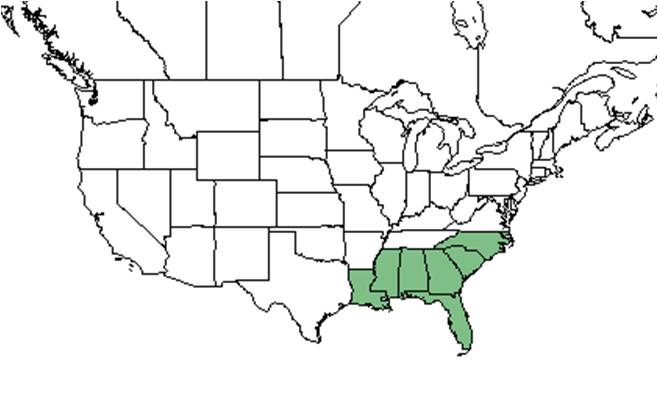Difference between revisions of "Hypericum fasciculatum"
KatieMccoy (talk | contribs) |
KatieMccoy (talk | contribs) |
||
| Line 29: | Line 29: | ||
===Phenology=== <!--Timing off flowering, fruiting, seed dispersal, and environmental triggers. Cite PanFlora website if appropriate: http://www.gilnelson.com/PanFlora/ --> | ===Phenology=== <!--Timing off flowering, fruiting, seed dispersal, and environmental triggers. Cite PanFlora website if appropriate: http://www.gilnelson.com/PanFlora/ --> | ||
| + | It has been observed flowering in June and October and fruiting October through December (FSU Herbarium). | ||
| + | |||
===Seed dispersal=== | ===Seed dispersal=== | ||
===Seed bank and germination=== | ===Seed bank and germination=== | ||
Revision as of 18:17, 12 November 2015
| Hypericum fasciculatum | |
|---|---|
Error creating thumbnail: Unable to save thumbnail to destination
| |
| Scientific classification | |
| Kingdom: | Plantae |
| Division: | Magnoliophyta - Flowering plants |
| Class: | Magnoliopsida - Dicotyledons |
| Order: | Theales |
| Family: | Clusiaceae ⁄ Guttiferae |
| Genus: | Hypericum |
| Species: | H. fasciculatum |
| Binomial name | |
| Hypericum fasciculatum Lam. | |

| |
| Natural range of Hypericum fasciculatum from USDA NRCS Plants Database. | |
Common name: Peelbark St. Johnswort
Contents
Taxonomic notes
Description
Distribution
Ecology
Habitat
In the Coastal Plain in Florida and Georgia, H. fasciculatum can occur in Nyssa/Ilex communities, dry pond margins, ditches in pine flatwoods, titi bogs, rotted stumps, and dry bottoms of cypress ponds (FSU Herbarium). Associated species include Ilex myrtifolia, Eriocaulon lineare, Xyris, Rhynchospora corniculata, and Lycopodiella (FSU Herbarium). It grows in loamy sand (FSU Herbarium).
Phenology
It has been observed flowering in June and October and fruiting October through December (FSU Herbarium).
Seed dispersal
Seed bank and germination
Fire ecology
Pollination
The following Hymenoptera families and species were observed visiting flowers of Hypericum fasciculatum at Archbold Biological Station (Deyrup 2015):
Apidae: Apis mellifera, Bombus impatiens
Colletidae: Colletes nudus
Megachilidae: Coelioxys sayi
Use by animals
Diseases and parasites
Conservation and Management
Cultivation and restoration
Photo Gallery
References and notes
Deyrup, M.A. and N.D. 2015. Database of observations of Hymenoptera visitations to flowers of plants on Archbold Biological Station, Florida, USA.